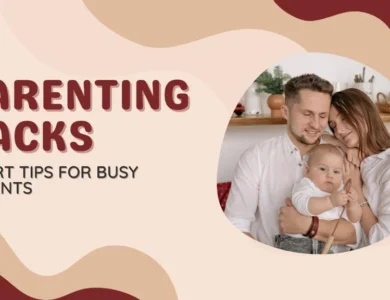Real Relationship Tips from FPMOMHacks

Table of Contents
Introduction
Relationships—whether romantic, familial, or friendships—are the heart of human life. Yet, in today’s fast-paced, digital-first world, many people struggle to maintain deep and meaningful bonds. That’s where relationship “hacks” come in. The phrase FPMOMHacks may sound new, but it reflects a growing search for practical, actionable ways to improve how we connect, communicate, and grow with those we love.
A great relationship doesn’t happen by accident—it’s built through effort, honesty, and consistency. People are searching online for advice on how to improve communication, rebuild trust, resolve conflicts, and keep love alive. This article gathers the most effective relationship tips from research, psychology, and real-life experience, presented in a user-friendly format.
If you want your relationship to feel stronger, safer, and more fulfilling, these hacks will give you the tools you need. Let’s explore how you can nurture bonds that last.
1. Prioritize Open and Empathetic Communication
Communication is the foundation of every healthy relationship. Without it, misunderstandings pile up and distance grows.
- Practice active listening: Focus fully on your partner’s words instead of planning your response. Nod, reflect back, and validate feelings.
- Use “I” statements: Replace blame (“You never listen”) with ownership (“I feel unheard when I’m interrupted”). This reduces defensiveness.
- Check in regularly: Small daily chats about emotions, stress, or gratitude keep the bond alive even outside big conversations.
- Balance speaking and listening: Healthy communication is a two-way street.
2. Build Trust Through Consistency and Vulnerability
Trust isn’t built overnight—it’s earned through repeated actions.
- Show reliability: Keep promises, be on time, and honor your word.
- Be transparent: Share feelings, worries, or even mistakes openly. Vulnerability deepens intimacy.
- Respect boundaries: Everyone has limits. When you honor them, you prove respect and reliability.
- Repair quickly: If trust is broken, acknowledge it immediately and commit to change.
3. Balance Individual Growth with Shared Growth
A thriving relationship respects both individuality and togetherness.
- Nurture personal interests: Keep hobbies, friendships, and goals alive outside your relationship.
- Support each other’s dreams: Celebrate wins and encourage progress.
- Adapt as you evolve: People grow with time. Stay curious about your partner’s evolving self.
- Avoid dependency traps: Relying solely on one another for happiness creates strain. Balance independence with closeness.
4. Turn Conflict Into an Opportunity
Arguments are inevitable. The difference lies in how you handle them.
- Pause instead of exploding: Step back when emotions run high.
- Stay respectful: No insults or character attacks—focus on the issue, not the person.
- Seek solutions, not victories: Instead of “winning,” aim for mutual understanding.
- Learn repair strategies: A gentle touch, humor, or saying “I love you” in conflict can reset the tone.
5. Create Shared Rituals and Memories
Relationships thrive when both people feel part of a “team.”
- Build rituals: Weekly date nights, Sunday walks, or shared morning coffee bring stability.
- Celebrate small wins: Promotions, personal achievements, even completing a tough day.
- Create traditions: Annual trips, birthday traditions, or nightly routines give meaning.
- Document moments: Photos, journals, or keepsakes keep memories alive.
6. Foster Emotional Safety
A healthy relationship feels safe emotionally, not just physically.
- Apologize sincerely: Admit mistakes without excuses.
- Forgive with intention: Forgiveness doesn’t erase the past but releases resentment.
- Be a safe listener: Allow your partner to express feelings without fear of judgment.
- Stay supportive in tough times: Emotional availability matters more than fixing problems.
7. Use Non-Verbal Affection
Sometimes words aren’t enough.
- Touch intentionally: A hug, kiss, or hand squeeze communicates safety and love.
- Eye contact matters: Looking into someone’s eyes fosters connection and trust.
- Body language cues: Open posture, nodding, leaning in show interest and care.
- Presence over perfection: Simply being there is often more valuable than perfect words.
8. Be Honest About Expectations
Unspoken assumptions create conflict.
- Talk early: Discuss values, finances, lifestyle, or family goals openly.
- Revisit expectations: As life changes, update agreements.
- Be honest even when it’s tough: Truth builds trust, even if it stings in the short term.
- Clarify gray areas: Don’t let uncertainty create resentment.
9. Express Gratitude and Appreciation Daily
Appreciation fuels positivity.
- Say thank you often: Even for small tasks. Gratitude reinforces effort.
- Highlight strengths: Remind your partner what you admire in them.
- Balance feedback: If you must share criticism, surround it with acknowledgment.
- Celebrate the little things: Daily wins count just as much as milestones.
10. Avoid Relationship Complacency
Complacency quietly damages relationships.
- Keep discovering each other: Ask new questions, share new dreams.
- Add novelty: Try new restaurants, trips, or hobbies together.
- Don’t assume you know it all: People evolve. Stay curious.
- Self-reflect: Regularly ask, “What can I improve in myself as a partner?”
Read More: DesignMode24.com: Complete User-Friendly Guide
Conclusion
Relationships require continuous effort, care, and adaptability. They aren’t built on one grand gesture but on countless small, intentional acts of love, trust, and respect. By practicing open communication, building trust, fostering emotional safety, and balancing individuality with shared growth, couples and friends can create a foundation that lasts. Conflicts become opportunities, routines become rituals, and appreciation becomes the glue that keeps love alive.
The tips outlined here—drawn from practical psychology, experience, and real-life relationship hacks—can guide you toward healthier, more fulfilling bonds. Whether you’re repairing trust, strengthening communication, or simply keeping love vibrant, remember: relationships aren’t about perfection, they’re about consistent effort. When two people commit to showing up with honesty, empathy, and gratitude, they don’t just survive—they thrive.
FAQs
1. How can I improve communication in my relationship?
By practicing active listening, using “I feel” statements, checking in regularly, and balancing speaking with listening.
2. How do I rebuild trust after a mistake?
Acknowledge the harm, apologize sincerely, stay consistent, and give your partner time and space to heal.
3. How can I keep individuality while being close?
Maintain personal hobbies, friendships, and goals while encouraging and supporting each other’s independence.
4. How do I handle conflicts without damaging the relationship?
Stay calm, avoid insults, take breaks when needed, and approach disagreements with problem-solving instead of point-scoring.
5. How can I show appreciation every day?
Express gratitude verbally, notice small efforts, celebrate daily wins, and reinforce love through words and actions.



